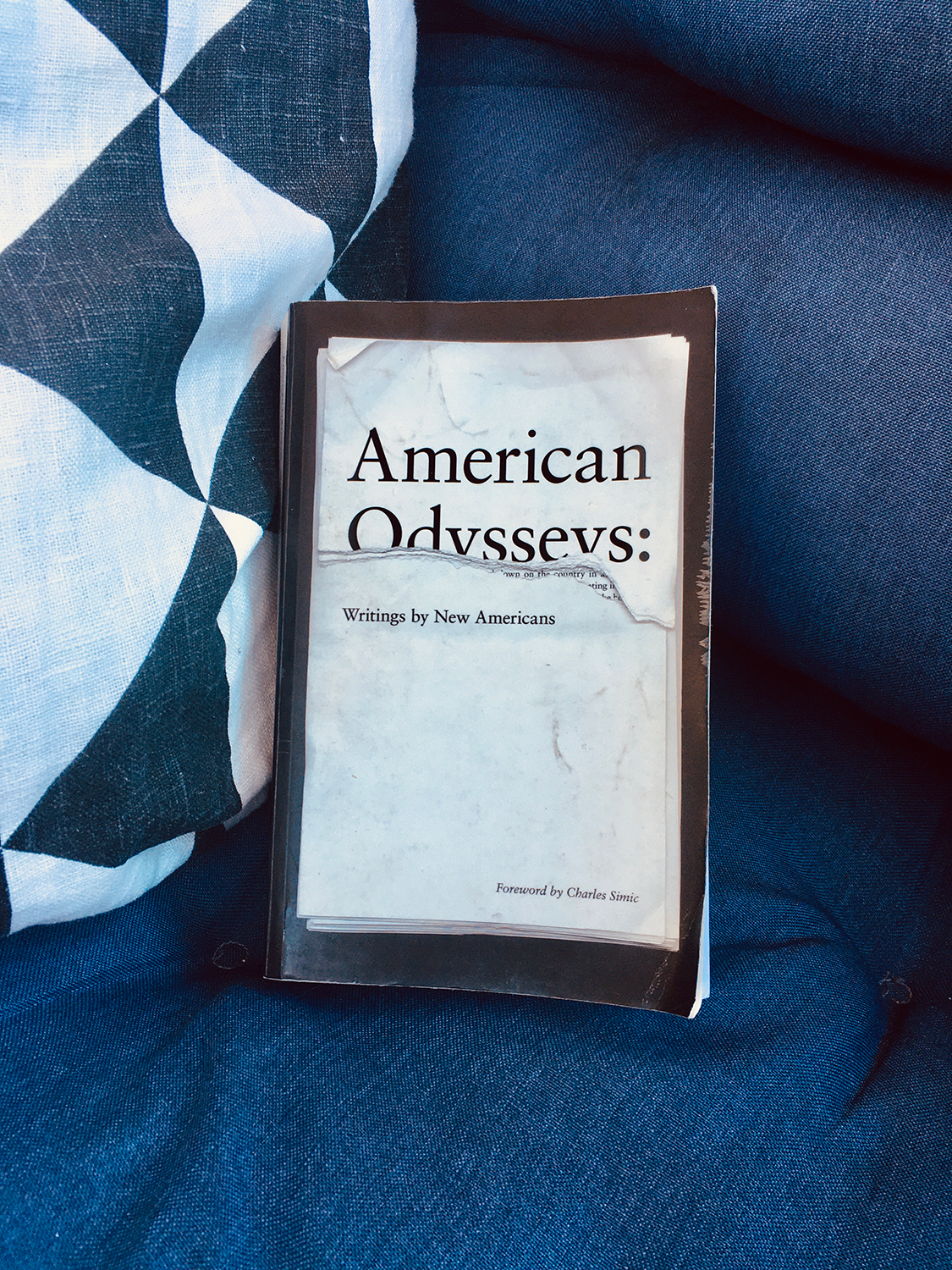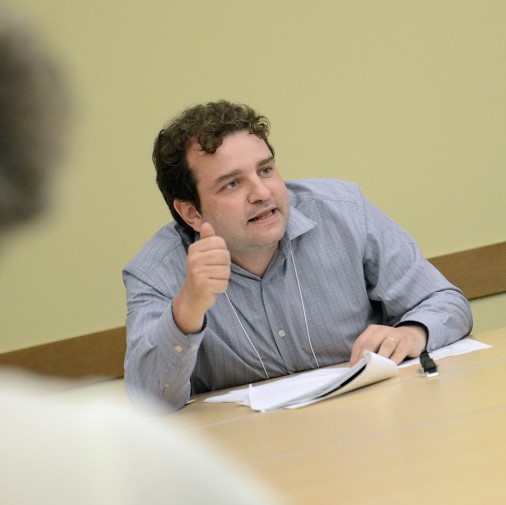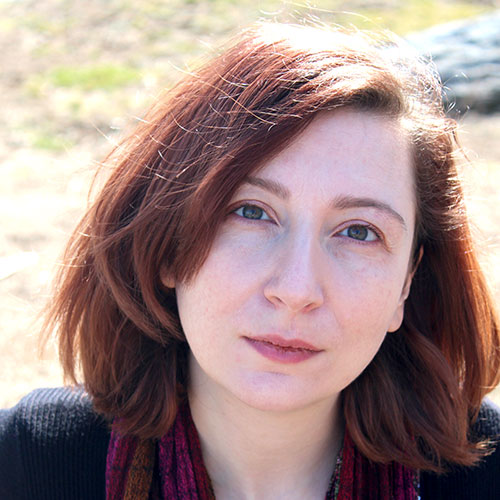Published February 28th, 2021
Review
by Filippo Bagnasco
American Odyssey: Writings by New Americans is an anthology of short stories, poems and novel excerpts exploring the immigrant experience in the USA. Edited by the Vilcek Foundation, it makes us aware of the unique point of view that only those who leave their home to look for a new one miles and miles away can truly take.
Bookstores in Paris are purveyors of many pleasures. Walking up and down cobbled streets, the mind busy attending to the assault upon the senses that every part of the city offers, while trying to avoid getting run over by cars and bicycles, these quaint establishments open up to your left and right at the most unexpected moments and leave you no choice but to enter them, no matter what your previous pursuit was.

It was one of these bookstores, on the Left Bank, that one afternoon during my semester abroad in Paris bid me come in. The owner of the bookstore, judging from his accent an American, welcomed me while sitting behind a small counter overrun with books and talking to another customer — judging from his accent, British. As much as the city has the habit of closing itself off in its shell of Francophonie and proudly refuses to acknowledge the existence of any language that is not French, one finds here and there anglophile corners that welcome the visitor — tourist, expat, student, or curious local — with all the pleasures that the English language can afford. This particular bookstore was one of these places and it was here that I stumbled upon a copy of American Odysseys.
As the subtitle informs us, the book is an anthology of Writings by New Americans. It was published in a wonderfully printed volume (designed by Justin Colt) in 2013 by the Dalkey Archive Press with support from the Vilcek Foundation. The foundation, as the preface recounts, “supports, honors, and celebrates the contributions of immigrants to the United States working in the arts and biomedical sciences” (14). They have prizes for “foreign-born professionals who have made outstanding contributions to their field” and one of these prizes is explicitly for young immigrant artists, whether they are writers, architects, painters, filmmakers, culinary artists, dancers, or musicians.
The texts featured in this volume are drawn from the shortlist for the Vilcek Foundation’s Prize for Creative Promise in Literature. It is refreshing to see an organization that explicitly supports immigrants to the United States, people who were born and grew up in a different country, likely speaking a different language, and had to adapt to a new cultural and linguistic environment in the United States. The preface also quotes the novelist Laleh Khadivi — also featured in this collection — in celebrating immigrants, “these nearly 250 million people who will die far from where they were born” and that greatly contribute to the culture that welcomes them (19–20).
I am one of these 250 million people worldwide and this anthology speaks to my experience, to my dreams, and to my struggles. Its celebration of writers that have overcome the challenges of mastering a different language gives hope and inspiration to me and countless others who have chosen to express their deepest selves in a language that we had to acquire through long years of study and work.
“If you wish to have an interesting life, become an immigrant or a refugee” (22). Charles Simic, the Serbian-American poet born in Yugoslavia and Pulitzer Prize for Poetry winner, pulls no punches in his foreword to the volume. This is the perfect sentence to introduce almost 600 pages of texts from 22 writers hailing from all continents and all walks of life. Simic describes the experience of the immigrant as “being a displaced person, speaking with a thick accent, unable to give a coherent account to a border policeman of how one ended up so far away from home ... one of the most humiliating and terrifying experiences one can have” (22–23).
Being an immigrant, being forced to express oneself in a foreign tongue, makes one a different kind of person and, if one manages to become one, a different kind of artist; one that belongs to a community that is both everywhere and nowhere, close to home and impossibly far away. It compels one to deal with unavoidable questions, seeking fleeting answers. “... to be an immigrant is to live in perpetual inner turmoil, with no hope of ever resolving any of these issues,” Charles Simic warns us (27). Living astraddle two or more cultures forces one to be acutely aware of them as they intersect and clash, pull and push the contorted fabric of everyday life in all directions, positioning the subject as participant and spectator in this “inner war,” as famously described by Gloria Anzaldúa in Borderlands/La Frontera.
But this peculiar condition also comes with some advantages. It shines an unbearably bright light on whole landscapes of human life that would have otherwise remained clouded in darkness: “... finding oneself in such a pickle brings us overnight to an understanding of the human condition that would ordinarily take a lifetime to achieve” (28). This deeper understanding of the human condition is exactly what the writers featured in this anthology set out to achieve with their novels, short stories, and poems.
It is this sense of maturity, of unique insights into themselves and the world around them that the writers collected in this anthology show. The odysseys evoked by the title all start at different points and end up finding home in various places, but their intersecting voyages share a common yearning for a meaning, for an understanding found in the tension between subjectivity and society, past and present, different places not simply geographical but mindscapes of history and comprehension.
Like Daniel Alarcón, whose parents moved to the United States from Peru when he was three. His novel At Nights We Walk in Circles, excerpted in this collection, recounts Daniel’s childhood experiences, living as part of an immigrant family trying to survive and make sense of a life split between Lima and the suburbs of Baltimore.

Or the poet Michael Dumanis, who grew up in a communal apartment in downtown Moscow and reached Reagan’s United States in 1981 when his family had to leave the USSR due to political repression. His poems anthologized in this book give voice to the dreams of a person divided between two different worlds, pulled into two different directions. In poetry, he found a tool to make sense of his own identity and to give his life a future, as perfectly expressed by the lines that close the poem “State of the Union”: “When I grow up, I do not want to be a headstone / When I grow up, I want to be a book” (91).
Stellar Yoon Kim, born in South Korea and emigrated to the United States at the age of 10, foregrounds the importance of having a public library at one’s disposal when trying to grasp a new culture and a new language. As a teenager growing up in Queens, the New York Public Library gave her the possibility and the sheer thrill to “read in a new language” and learn about American culture and the history of the United States (245).

Also, the experience of Ellen Litman, who moved with her family to the United States from Russia at the age of nineteen, tells us of the difficulties of completely upturning one’s life at an age when most of our cultural reference points are set and stable, the awkwardness that goes with the inevitable “sense of isolation” and the ensuing “desire to belong” (276). Her story is also one of somebody who “came late to writing,” an already impossible career, much more so in a language not one’s own (277). Her adoptive country, besides providing her with a thousand inevitable difficulties, also supported her. She highlights the importance of having “fantastically talented and infinitely generous teachers.” In her case, they helped her overcome her problems, find pleasure and a creative outlet in writing, and finally publish her collection of short stories The Last Chicken in America, also excerpted in American Odysseys (278).
American Odysseys has a lot to offer. The collection establishes a dialogue within a generation of young people who grew up speaking different languages, who consider traveling across the globe a nonnegotiable part of one’s formation, who seek the different rather than the familiar, and who are ready to let their understanding of the world be touched by experiences wildly different from theirs.
Readers will find in American Odysseys a book to hold on to, read and reread, leaf through looking for a page or two able to give them sudden inspiration or momentary insight. The collection will reward its readers with a fascinating and diverse mosaic of ESL writing in the United States that stands as a monument to the accomplishments of a whole generation of young writers and immigrants.
Nationality: Italian
First Language(s): Italian
Second Language(s):
English,
German,
French
Supported by:

